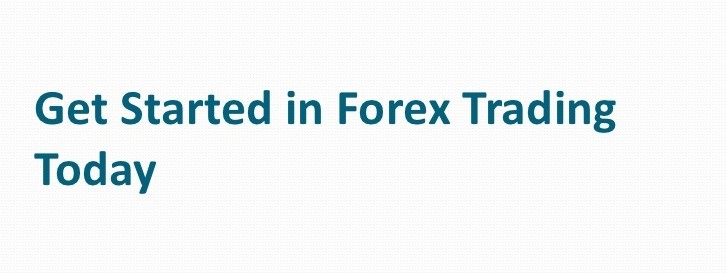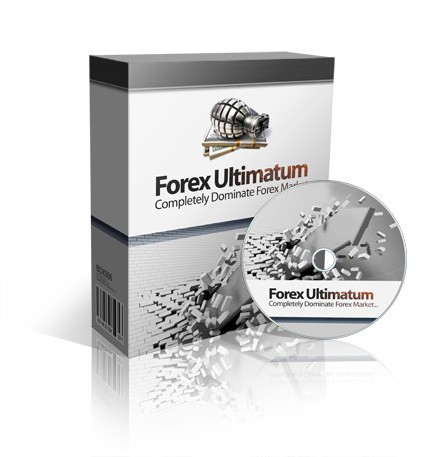Getting started in forex
Post on: 19 Май, 2015 No Comment

U.S. regulatory agencies have noted for years that an inordinate number of their fraud cases have been centered around over-the-counter forex markets. Those agencies finally dropped the hammer on forex firms in 2008. The Commodity Futures Trading Commission (CFTC) and National Futures Association (NFA) released new regulations on forex trading that will impact all traders. If youre getting started in forex, the new rules are bound to influence your trading, but understanding the basics is a big part of the battle.
The Farm Bill passed by Congress in May 2008 included several amendments to the Commodity Exchange Act. The bill made the CFTCs anti-fraud authority apply to certain retail off-exchange foreign currency transactions, created a new registration category for retail foreign exchange dealers, and required registration for those who solicit orders, exercise discretionary trading authority and operate pools for retail off-exchange foreign currency transactions. It also imposed minimum capital requirements for futures commission merchants and retail forex dealers. The parts of the legislation regarding the CFTCs anti-fraud authority were effective upon passage of the bill. However, other parts of the legislation, including the registration of parties engaged in these transactions and minimum capital requirements, will only be effective upon the CFTCs issuance of final regulations. According to a CFTC spokesperson, the CFTC hopes to release a notice of proposed rulemaking soon.
More rules were proposed by NFAs board of directors and are awaiting approval by the CFTC. These rules include forex customer protection issues, such as the information to be included in a customers confirmations and account statements and the use of hypothetical performance data and discretionary trading authority, according to Larry Dyekman, director of communications and education at NFA.
Later this year NFA anticipates the CFTC will publish its new forex rules related to forex trading advisors, pool operators and introducing brokers, Dyekman says. Once the final rules are published, all of these forex entities will be required to register with the CFTC and become members of NFA and will be subject to NFA rules and CFTC regulations. All of NFAs new and proposed forex rules have one goal: to bring greater transparency, stability and customer protection to the retail forex markets, he says.
Many experts say that the new rules represent an evolution of the forex market that the new rules can weed out bad firms and clean up the industry, helping traders in the long run.
For the industry, its a good thing. [The new rules] require [forex firms] to be more solid. This is the right direction, says Yossi Beinart, CEO of HedgeStreet.
Others say the new rules are biased in favor of larger firms by including higher capital requirements, which may not be the right approach given the performance of the investment banking community.
Many of the regulations we feel very good about. The toughest one is the capital requirement. Many firms dont necessarily understand the impact. By June of 09 the majority of forex dealer members are going to be gone. Any time you eliminate competition that broadly, in the end, the clients going to get hurt, says Bruce Pollack, head of the forex division at PFG Best.
READY, SET, TRADE
Getting started in forex is similar to getting started in trading in other asset classes. As with other products, its important to educate yourself and develop a trading plan. Its key to have a trading plan and stick with that plan. If you are a futures trader or an active trader in other markets, and youve been successful, youve probably done it through being disciplined. You can take discipline from other markets and easily bring it to forex, says Betsy Waters, global director of dbFX.
Dyekman advises studying the forex markets, how they operate and the risks involved. The first steps a forex trader needs to take are the same steps that a trader in any other market needs to take. Ask yourself what your investment goals [are] and what products will help you reach those goals, he says.
Dyekman says you should carefully read and understand your customer account agreement before signing it, and ask your firm to clarify any elements of the agreement you dont understand.
As with all trading, practice makes perfect. Experts advise you to open a practice account, or even open multiple accounts at multiple firms to see which ones a fit for you. Get a demo account, use the platform. Follow the charts. Try to get a feel for the market and how the different markets move and the day-to-day volatility. [Dont] open a demo account with one broker and open a live account with another, Waters says.
Its important to keep your emotions in check during the transition from practice account to live account. When you go from demo to live, the emotions come in, so you dont want to be confused about how the platform works, Waters says.
Beinart says its essential to have a strategy and stick with it. Understand the risk. [In] markets like forex, you can get hurt. Know that up front, he says.
Knowing what you stand to lose when you enter a trade is critical. Start with something that will limit losses if you make a mistake, understand [your] gains. Compare the providers and read the fine print, Beinart says, adding that in particular you should look at how each firm closes a position and how they get a margin call.
Mark Frey, VP of forex trading at CustomHouse, says capital preservation is key. He says the first level of discipline is to cut your losing trades short and not to alter your specified stop loss levels.
One of the hardest things to learn is to allow your gains to run and cut your losses short. Too many people allow their egos to get wrapped up in their trades. They dont want to admit theyre wrong so they let their losses run longer than they should. As soon as they [have a winner] they take small gains so they can pat themselves on the back and say Im right, Frey says. This, of course, is the opposite of what a trader should do and allows a couple of losses to wipe out all of that traders previous gains.
FUTURES VS. FOREX
You also must choose between trading the OTC cash forex market or exchange-traded currency futures. In the cash market, its easier to control the size of your trade. While cash forex often is offered with no fees, fees are imbedded in the bid-ask spread and can be significantly higher than futures depending on the platform, timeframe you are trading and size of your trades. Also, cash platforms do not have all of the protections of a regulated futures exchange.
Waters says the difference in liquidity is important when looking at futures vs. the cash market. Look at the less liquid times of day. In the early evening hours, youve got better liquidity in the cash market than the futures market. On a 24-hour basis, youve got deeper liquidity and narrower spreads in the cash market, she says, adding that your leverage and your flexibility with leverage can factor into your decision.

Liquidity and leverage really make a difference between futures and cash. Its traditional in spot fx markets that we offer [100-1] leverage, and usually in futures with a broker you might get [20-1], so that makes a big difference, she says. Most experts will tell you not to utilize all the leverage available to you, as that is a recipe for failure.
Frey says the interbank market is by far where you find the best liquidity. The CME Globex futures market for major currencies is fine you have decent depth of market, you have decent liquidity, but if youre going to trade anything less standard than kiwi, youre going to find substandard liquidity across most time zones. You need to be wary of that in the futures market, he says.
Of course a beginning trader should probably stick with the most liquid pairs and wait until he or she gains more experience to trade more exotic instruments like obscure currencies and cross pairs.
Other product offerings in forex include options and ETFs. Waters says deciding which one to trade depends on your investment objectives and how you want to diversify your portfolio. She adds that one drawback to ETFs is that fees can be higher.
Frey says theres high risk and high reward with options trading because of the levels of volatility.
Frey adds that price transparency is an important issue. When you get into more exotic products, it becomes a question of transparency of price. Any time theres a lack of transparency of price means youre not getting the most efficient price. Stay away from really exotic structures because you want to trade structures that have good liquidity and are relatively transparent so you can be assured of an efficient and effective price, he says.
In February, CME Group announced it would launch a series of e-micro contracts aimed at retail traders. The contracts will be one-tenth the size of the corresponding CME Group forex contracts and are geared towards individual traders and small commodity trading advisors.
(ANTI) FRAUD SQUAD
Due diligence is always an important first step before opening up a trading account and it is more important in forex. Always do business with a registered forex firm. Check NFAs Web site for background checks and registration information.
The CFTCs Web site has guides for protecting yourself from forex fraud and includes posts and archives of all enforcement activities.
For a beginning forex trader, its important to educate yourself, discipline yourself and know what you stand to lose or gain. Dont commit too much capital to any one trade. Thats the biggest thing, Frey says.














